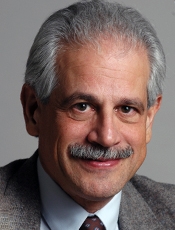Date: December 13, 2017
Number: 17-086
Contact: Corey Egel | 916.440.7259 | CDPHpress@cdph.ca.gov
SACRAMENTO – As smartphone use continues to increase in the U.S., especially among children, the California Department of Public Health (CDPH) today issued guidance for individuals and families who want to decrease their exposure to the radio frequency energy emitted from cell phones. Although the scientific community has not reached a consensus on the risks of cell phone use, research suggests long-term, high use may impact human health.
“Although the science is still evolving, there are concerns among some public health professionals and members of the public regarding long-term, high use exposure to the energy emitted by cell phones,” said CDPH Director and State Public Health Officer Dr. Karen Smith. “We know that simple steps, such as not keeping your phone in your pocket and moving it away from your bed at night, can help reduce exposure for both children and adults.”
Cell phones emit radio frequency energy when they send and receive signals to and from cell towers, and some scientists and public health officials believe this energy may impact human health.
Meanwhile, cell phone use in the U.S. has increased dramatically in recent years. About 95 percent of Americans own a cell phone, and 12 percent rely on their smartphones for everyday Internet access. In addition, the average age when children get their first phone is now just 10 years old, and a majority of young people keep their phones on or near them most of the day and while they sleep.
“Children’s brains develop through the teenage years and may be more affected by cell phone use,” said Dr. Smith. “Parents should consider reducing the time their children use cell phones and encourage them to turn the devices off at night.”
The new CDPH guidance Cell-Phone-Guidance includes practical steps both adults and children could take to reduce exposure to radio frequency energy from cell phones. That includes:
- Keeping the phone away from the body
- Reducing cell phone use when the signal is weak
- Reducing the use of cell phones to stream audio or video, or to download or upload large files
- Keeping the phone away from the bed at night
- Removing headsets when not on a call
- Avoiding products that claim to block radio frequency energy. These products may actually increase your exposure.
More information: Electromagnetic Radiation Safety http://www.saferemr.com/2017/03/cell-phone-safety-guidance-from.html

Image: Joel M. Moskowitz, Ph.D.
Director
Center for Family and Community Health
School of Public Health
University of California, Berkeley
